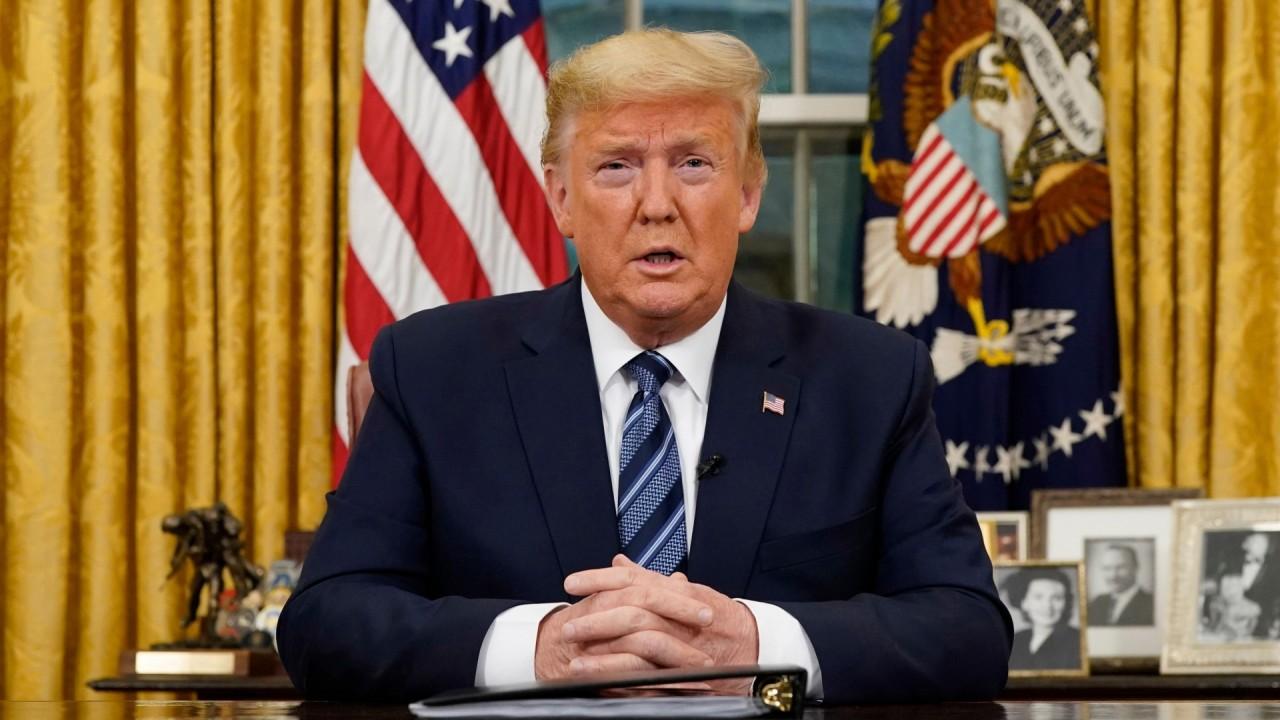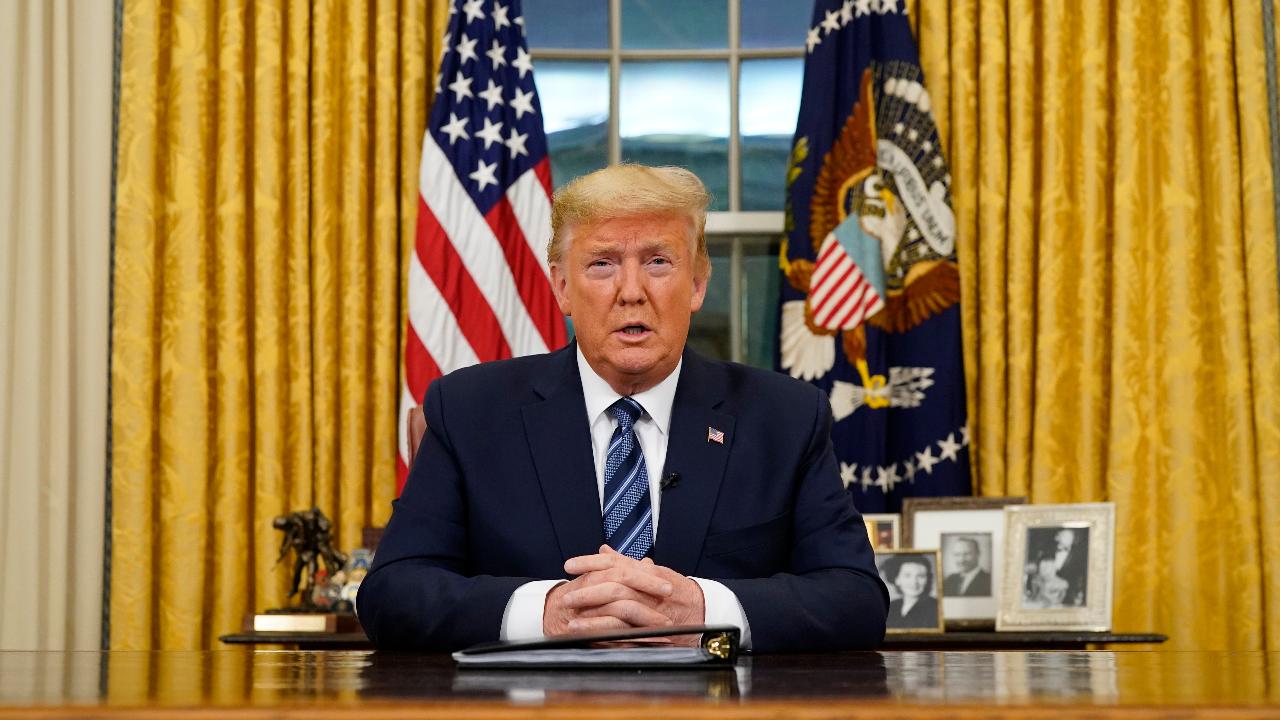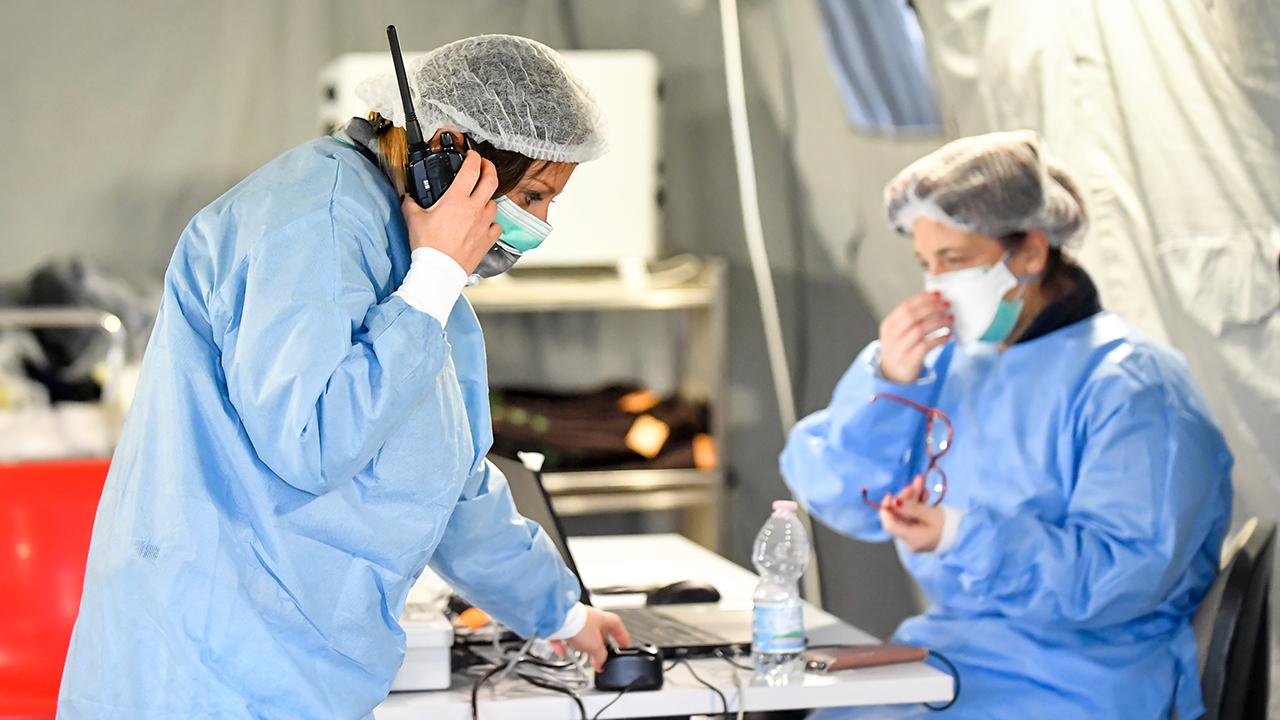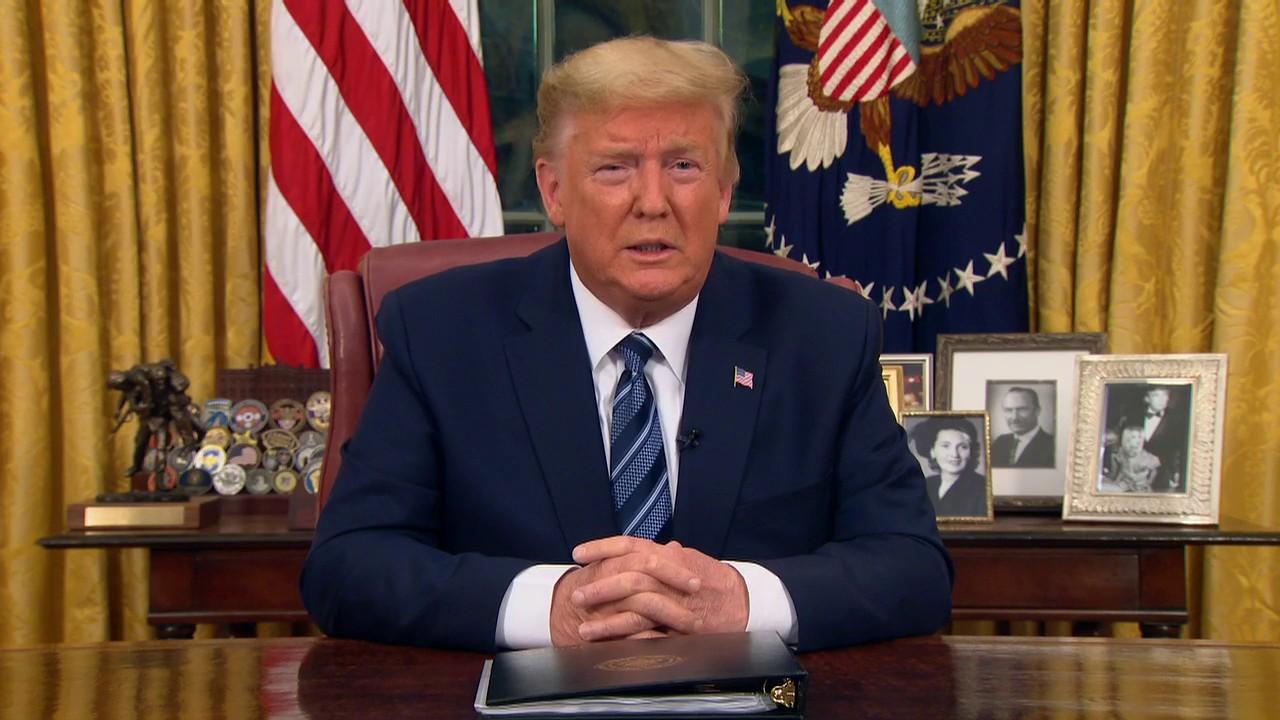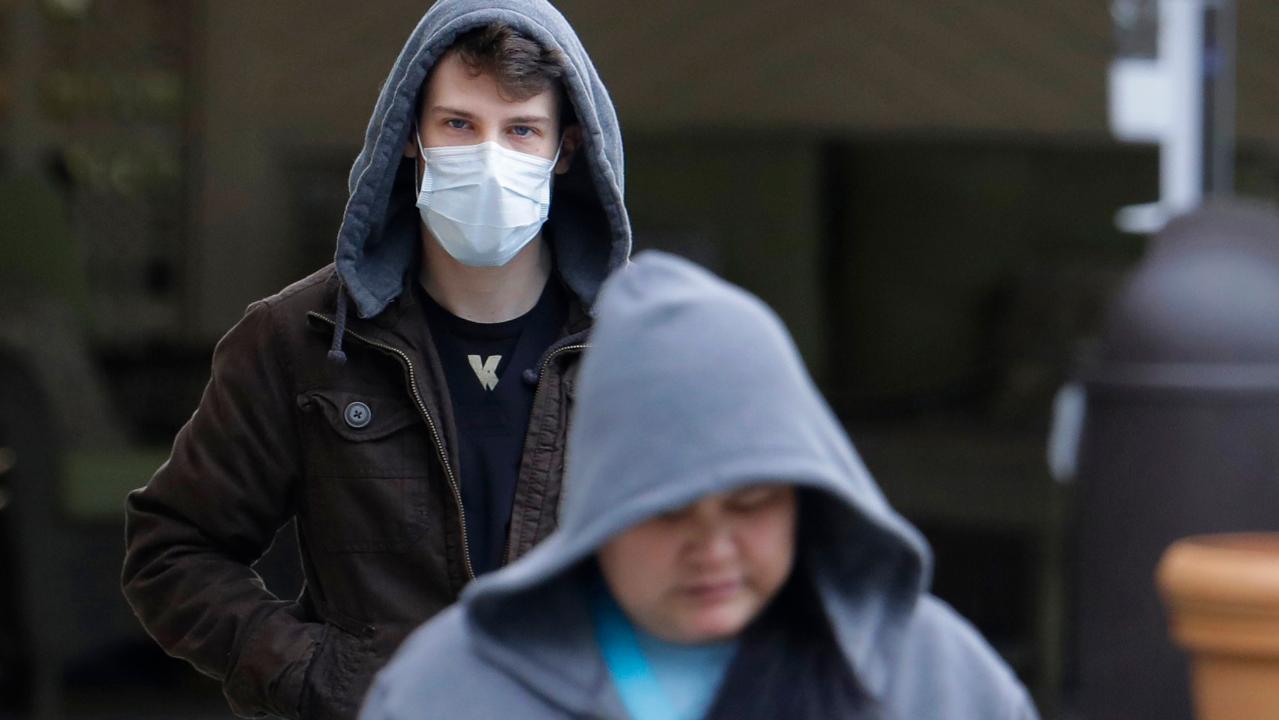Trump offers coronavirus relief for small businesses with $50B in aid
President sought to reassure investors and the American public as the coronavirus outbreak worsens.
President Trump said Wednesday night that his administration will provide a $50 billion relief package to small business owners affected by the coronavirus outbreak as part of sweeping efforts to hinder the economic impact of the growing pandemic.
Trump said he will direct the Small Business Administration to provide liquidity to states and small business owners through low-interest loans. The president said he will ask Congress to increase funding for the initiative by $50 billion.
“This is not a financial crisis," Trump said during a primetime address from the Oval Office. "This is just a temporary moment of time that we will overcome as a nation and as a world.”
The low-interest loans are one of several Trump-backed initiatives to reassure businesses after days of market volatility. The president said he will take executive action to provide emergency paid sick leave for workers who are ill, under quarantined or caring for others. He called for deferments on tax payments for businesses and individuals affected by coronavirus without interest or penalties, as well as immediate payroll tax relief for U.S. companies.
Additionally, Trump said he will enact a 30-day ban on all travel to and from Europe, excluding the United Kingdom, in order to slow the virus' spread. He urged Americans to listen to directives from their local officials, such as bans on mass gatherings and social distancing protocols.
WHAT COULD A BAILOUT FOR THE CRUISE, HOTEL AND AIRLINE INDUSTRIES LOOK LIKE?
Stock futures fell more than 500 points following the news of the travel ban.
“We are marshaling the full power of the federal government and the private sector to protect the American people," Trump said.
DOW CLOSES IN BEAR MARKET AMID VOLATILE SESSION
Trump announced the latest measures amid a prolonged slide in U.S. stock indices. All three major averages fell into bear market territory at the close of trading Wednesday, marking a 20 percent decline from their peaks in February.
The market plunge occurred after the World Health Organization officially declared that coronavirus was a global pandemic. More than 125,000 individual cases have been confirmed globally.
The Dow Jones Industrial Average posted a decline of 1,464 points, which ranked among the steepest single-day declines in history. The S&P 500 and Nasdaq Composite rallied to escape bear market territory.
The emergency resources are the latest in a series of measures the Trump administration has taken in a bid to reassure U.S. markets and the American public at large. Trump previously signed off on an $8.3 billion emergency funding package that included more than $3 billion in funds earmarked for vaccine development and coronavirus test kits. The package received bipartisan support.
CORONAVIRUS PUTS PAID SICK LEAVE BENEFITS UNDER SCRUTINY
Trump has proposed a move to a zero percent payroll tax to provide relief to U.S. employers.
Earlier Wednesday, Trump met at the White House with top officials from the financial and tech sectors to help coordinate coronavirus response efforts. Bank of America CEO Brian Moynihan said the big banks are “in a great position” and ready to assist small- and medium-business owners.
GET FOX BUSINESS ON THE GO BY CLICKING HERE
Congress was set to put forth a coronavirus stimulus package that would include free coronavirus testing, paid sick leave and other benefits for affected Americans. Treasury Secretary Steve Mnuchin expressed support for government-backed aid.
U.S. authorities around the nation reported more than 1,000 confirmed individual cases as of Wednesday, as well as 32 deaths. Most of the deaths to date have occurred in the state of Washington, where Seattle residents were hit especially hard by coronavirus.
State and local officials in various locales, including Santa Clara County and the city of San Francisco in California, have enacted bans on mass gatherings to halt the virus’ spread. U.S. businesses and sports leagues have canceled or postponed public events.




















